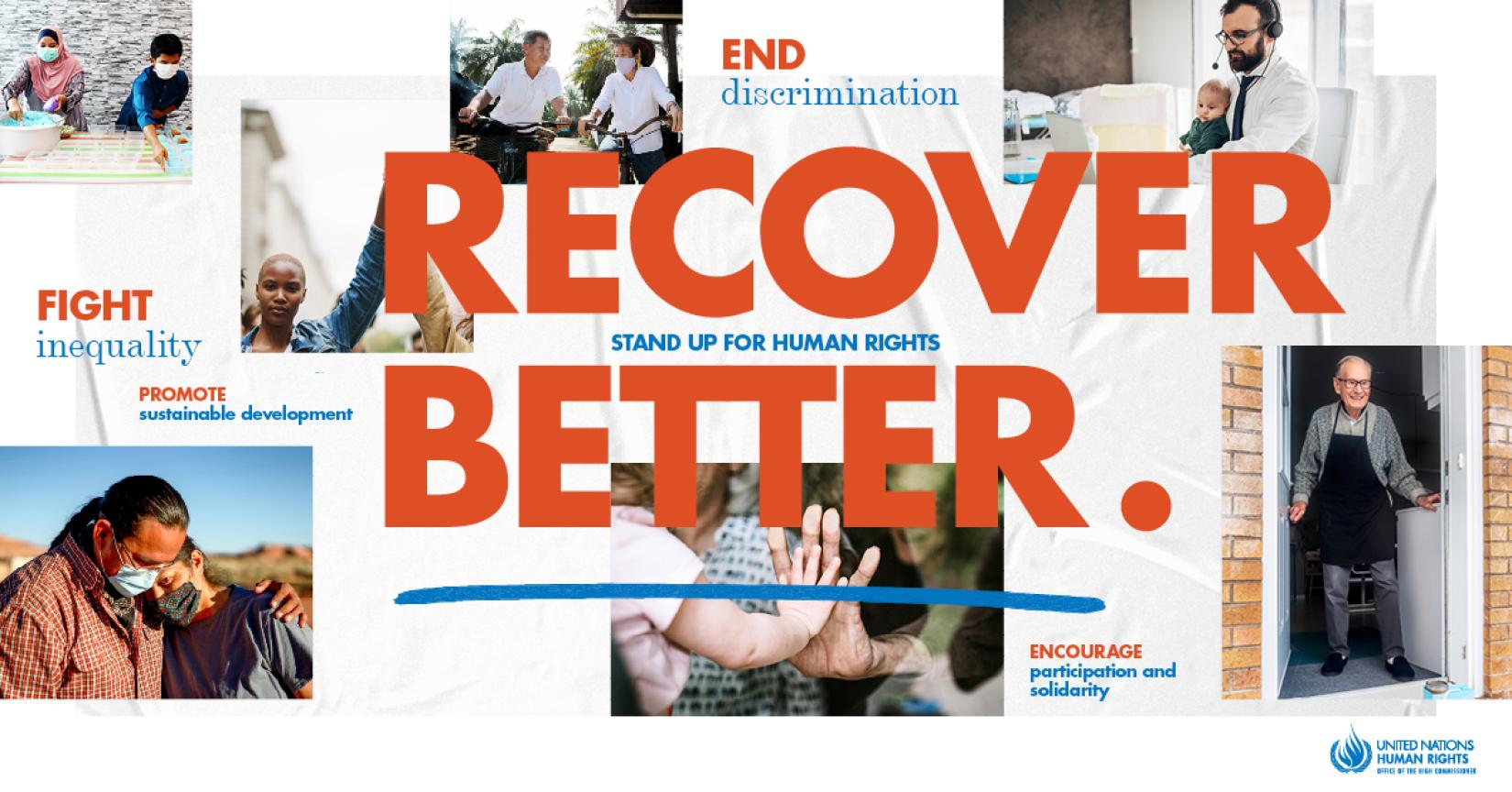The UN in Viet Nam Stands Up for Human Rights on International Human Rights Day 2020 and Every Day to Enable Us to Build Back Better from COVID-19
10 December 2020
- Ha Noi (Viet Nam), 10 December 2020 – The United Nations (UN) in Viet Nam joins all organisations and individuals around the world in celebrating International Human Rights Day in 2020. This year’s theme reflects on the challenges and opportunities presented by the COVID-19 pandemic, calling on all countries to build forward better by standing up for human rights.

The September 2020 UN Assessment of the Social and Economic Impact of COVID-19 in Viet Nam highlighted the complex and grave socio-economic impacts of the pandemic, and commended the efforts being made by the Government to address these challenges. As the assessment highlighted, the protection of human rights across the spectrum, including economic, social, cultural, civil and political rights, must be at the heart of any policy and intervention that addresses the impacts of COVID-19. The UN Secretary-General has also underlined that responses that are shaped by and respect human rights “prepare the ground for emerging from this crisis with more equitable and sustainable societies, development and peace.”
Policies and actions aimed at response and recovery in Viet Nam must take into account the disproportionate impacts of the pandemic on specific groups, in particular marginalized and vulnerable ones. Incorporating the perspectives, voices and knowledge of the people most affected in response and recovery measures will also be essential. By ensuring their representation, participation and leadership roles, Viet Nam will guarantee that no one is left behind.
Fundamental freedoms, particularly freedom of expression, the right to access information and the right to participate in decision-making that affects one’s life, are vital to ensure effective, appropriate and proportionate recovery measures. These rights allow meaningful participation of all sectors of society and diverse non-government actors in the design and implementation of government responses to COVID-19. Building on its success in maintaining public trust, the Government should foster such discussions to build forward better. In addition, health surveillance tools and efforts to counteract ‘fake news’ should adhere to the principles of legality, necessity, proportionality, serve a legitimate public health objective and represent the least intrusive approach required to achieve that result.
Today, 10 December, also marks the end of the 16 Days of Activism against Gender-Based Violence. The 2019 national study on violence against women in Viet Nam exposed the serious situation and drew attention to the wider issue of gender-based violence in the country. In 2020, the COVID-19 pandemic has deepened pre-existing inequalities, exposing deep-rooted vulnerabilities in social, political and economic systems, which are in turn amplifying the impacts of the pandemic. This includes increased gender-based violence and difficulties in accessing support services and justice. The assessments of the UN in Viet Nam note that gender inequality is a cross-cutting issue that must be addressed through all aspects of the COVID-19 response. This means including women and organisations working towards gender equality at the heart of the COVID-19 response; providing protection and support to women, children and other survivors of gender-based violence; transforming the inequities of unpaid care work into a new, inclusive care economy that works for everyone; and designing socio-economic plans with an intentional focus on the lives and futures of women, girls and others negatively impacted by gender inequality.
Viet Nam’s response and recovery plan, as well as its long-term socio-economic development strategy and plan, need to stay focused on progress towards Agenda 2030 and Sustainable Development Goal achievement, including by embedding the full protection of human rights and the commitment to Leave No One Behind. From individuals to the Government, from non-governmental organizations and grass-roots communities to the private sector, everyone has a role in building a post-COVID Viet Nam that is better for present and future generations. The UN in Viet Nam will continue to work closely with the Government and people of Viet Nam to support them in achieving this aspiration.






